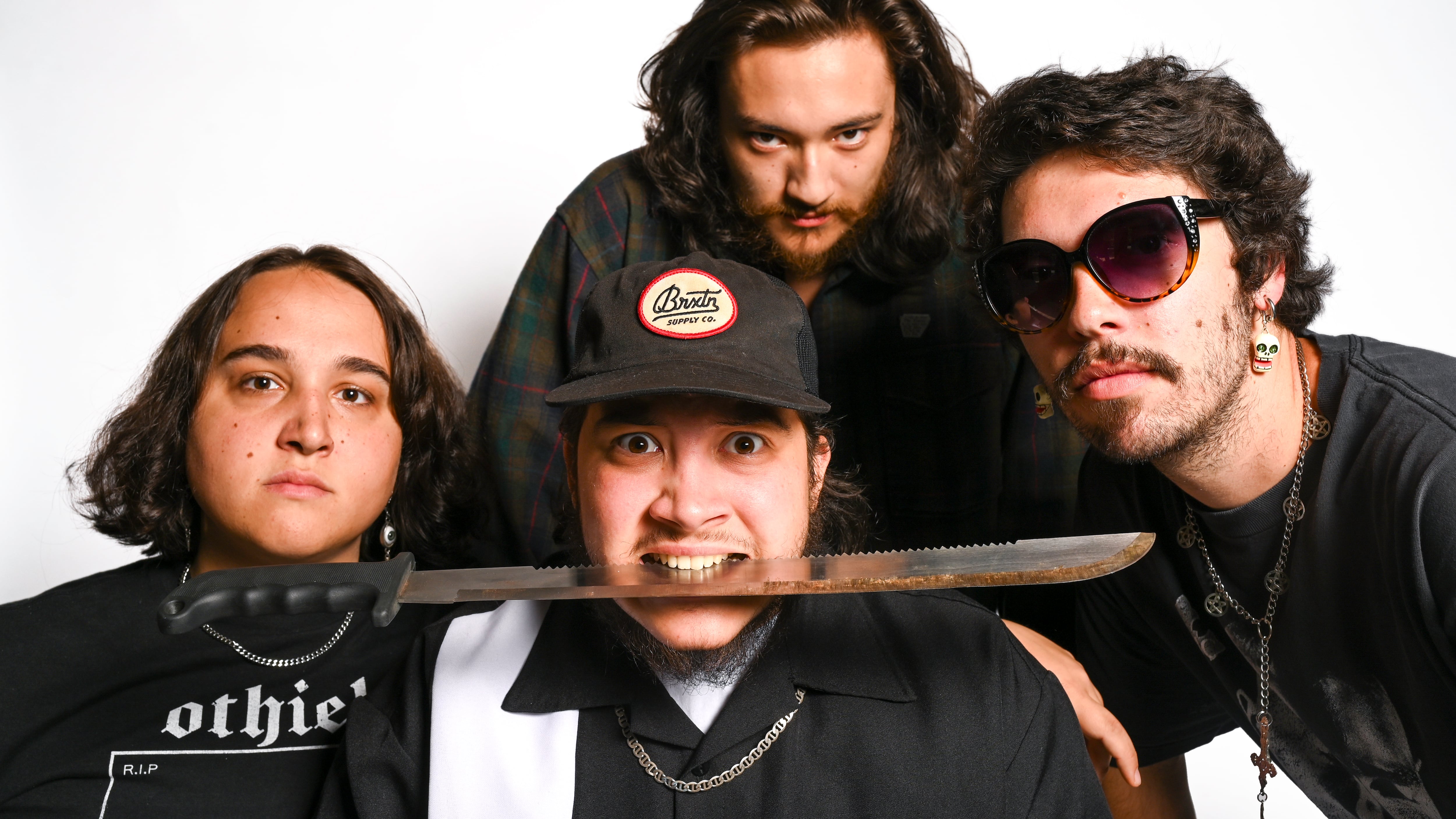Who is Michael, and why does he need to be killed?
The question has followed Portland noise-rock band Kill Michael since the first Instagram posts they made following their 2018 inception. According to frontman Zoë Tricoché, “one day someone will know” the answer.
But for now, read “Michael” as any presence in your life that needs to be eliminated—maybe an ex, maybe a toxic friend or family member, or maybe something bigger, broader and more socially pervasive.
The band takes aim at no shortage of Michaels on their bracing new album, Ugly Truth of Building, which establishes them as one of Portland’s gnarliest and most politically outspoken rock bands. The band’s sludge-punk squall was already formidable on their 2020 album, 60:40, but Ugly Truth of Building is a clear level-up—louder, heavier, denser, sludgier, angrier and more experimental.
“We want to sound heavy, we want to get emotional and gritty, and we want to get to the rawness of everything,” says Tricoché of the band’s approach to making Ugly Truth of Building.
Tricoché attributes this new infusion of power and energy to the band’s latest lineup—Tricoché on vocals and guitar, Myra Tibray on guitar and synth, Jarl Branum on bass, and Sam Spiders on drums. In earlier incarnations of the band, Tricoché, who identifies as trans and mixed, believes his bandmates “didn’t understand the subject matter I was talking about.”
Tricoché describes the present lineup as much more sympathetic. “Everyone in Kill Michael is queer and culturally mixed, which is really cool,” he says. “We can actually write together now and get these themes down and get these meanings in line.”
On Ugly Truth of Building, these themes include gentrification (“Brooklyn”), imperialism (“Tu Quieres Todo”), revolution (“Violence”) and the artist’s own mental health struggles (“Leaving”).
Tricoché delivers these themes in a voice that alternates deftly between a doom-metal shriek and a suave goth-rock croon. Recording these vocal takes is the most taxing part of recording for Tricoché—and not just because of the volume at which he screams.
“The fun part is the instruments,” Tricoché says. “And the second that it’s time for vocals, I’m freaking out—how I going to vocalize these intense themes and these words? With instruments, we’re all working together, it’s getting done quick. With vocals, it’s like, I need like a month, guys.”
But Tricoché isn’t the only voice on the album—two of its 10 tracks feature spoken-word guest performances. On “Boriken,” Tricoché enlisted his cousin to sing the praises of Puerto Rico, the “greatest country in the world,” albeit one whose history has been defined by colonialism and imperialism for more than half a millennium.
“I wanted to vocally highlight the things we’re passionate about,” Tricoché says. “The original recording [my cousin sent me] was like six minutes longer. He was going off about everything on the island—like, he had listed every single beach.”
Puerto Rico’s history of colonial violence is implied in “Boriken” rather than explained straight out, with the cousin’s description of the island’s natural beauty contrasting with the trauma of its painful history. Poet-activist Kesaia Fifita’s performance on “I Pray for Violence” is much more direct, combining revolutionary rhetoric with Old Testament imagery over a beat that buckles like the death throes of a collapsing skyscraper.
“When we were recording it, my jaw dropped,” Tricoché says. “I was like: That’s heavy. That’s raw. And it’s exactly what needs to be said.”
In Kill Michael’s book, that’s the highest praise possible.
Listed on 4.92% of Ballots
“One of the greatest powers of music is to do things to large groups of people that words can’t do. I love [Kill Michael] for that, and for other hidden reasons.” —Bim Ditson, Help
